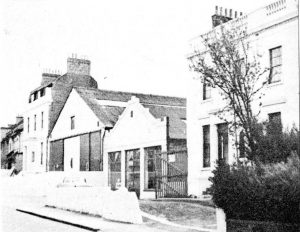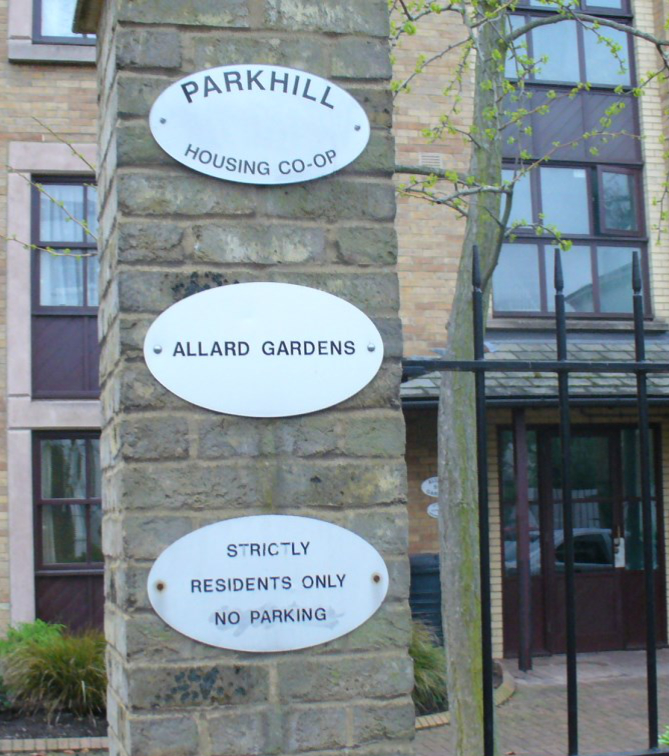Read Part 3 of David’s Memoirs here
Read Part 5 of David’s Memoirs here
Allard Motor Company – Workshop Locations
| Address | Purpose |
|---|---|
| 24/28 Clapham High Street – Head Office | Allard Motor Company, Adlards Motors, S1 Experimental Workshop |
| Park Hill, Clapham | Allard Chassis manufacturing workshop over 1700 cars |
| 126/128 New Kings Road, Chelsea | Hilton Brothers – Coach Builders |
| 9 Estcourt Road, Fulham | Encon Motors – Coach Builders |
| South Side, Clapham Common | Allard Workshop and Adlards Showroom |
| 51 Upper Richmond Road, Putney | Allard Machine Shop and Service Section |
| 3 Keswick Road, Putney | Allard Service & Spares and Adlards Showroom |
| 49 Acre Lane, Brixton | Adlards Main showroom |
| Hugon Road, Fulham | Wartime Workshop for Ford Military Vehicles |
The Park Hill Factory – Clapham
The Company moved to the Park Hill premises in early 1946 a few months before the Clapham High Street, Head Office and showroom were occupied. One disadvantage at Park Hill was that it was sited in a residential area and had limitations on the inherent noise a small scale vehicle production factory would make. The workshop occupied nearly 35,000 square feet and consisted of both a forecourt and a workshop divided into several sections.

The major element of the chassis construction being supported by all the various sub assemblies such as front and rear axles, the De Dion axle, arc welding, drilling and fabrication of brackets, pipe bending and the operation of what was at the time, a state of the art profile metal cutter. The ‘myth’ (in my view) that some of the chassis cross tubes were made from ‘sewer tube’ is a little far from the mark.
The tube was originally a 3” diameter 10 SWG cold drawn seamless mild steel tube. As a substitute, it could well be that due to a shortage of the 3” diameter tube, high pressure steam tube might have been used. The difference being that this tube is based on inside diameter and it is unlikely, depending on the wall thickness, the outside diameter would be exactly 3”. Also it must be said that the quality was better than the normal mild steel tube. All the exhaust system pipes, along with the bulkhead roll tubes were made in house using a manually operated pipe bender. The final assembly of the chassis frames, for all models, was carried out in a jig, not chalk marks on the floor, as some would believe! A small area was essentially for the assembly of what was known as ‘chassis runners’. The chassis runners, so they could be delivered by road to the Coach Builders who were sited some 5/6 miles away at Hilton Brothers, New Kings Road, Chelsea or Encon Motors at Fulham, were equipped with both front and rear plywood wings and a wooden drivers seat.
For it’s time these workshops were well equipped, employing some 20 plus tradesmen. The stores areas were split into two sections, one for vehicle production and the other for spares for the Service Section at Keswick Road. Within the workshop was an inspection section to monitor sub-contracted components, including parts machined by the company’s own machine shop at Upper Richmond Road, Putney. Along with the drawing office the site included the administrative offices including Reg Canham’s office. He was the Works Manager and later became the Managing Director.
The factory closed in 1954 with chassis construction being carried out at the New Kings Road, Chelsea. The site was turned over to housing. However the name Allard still exists as the name for this group of properties.
